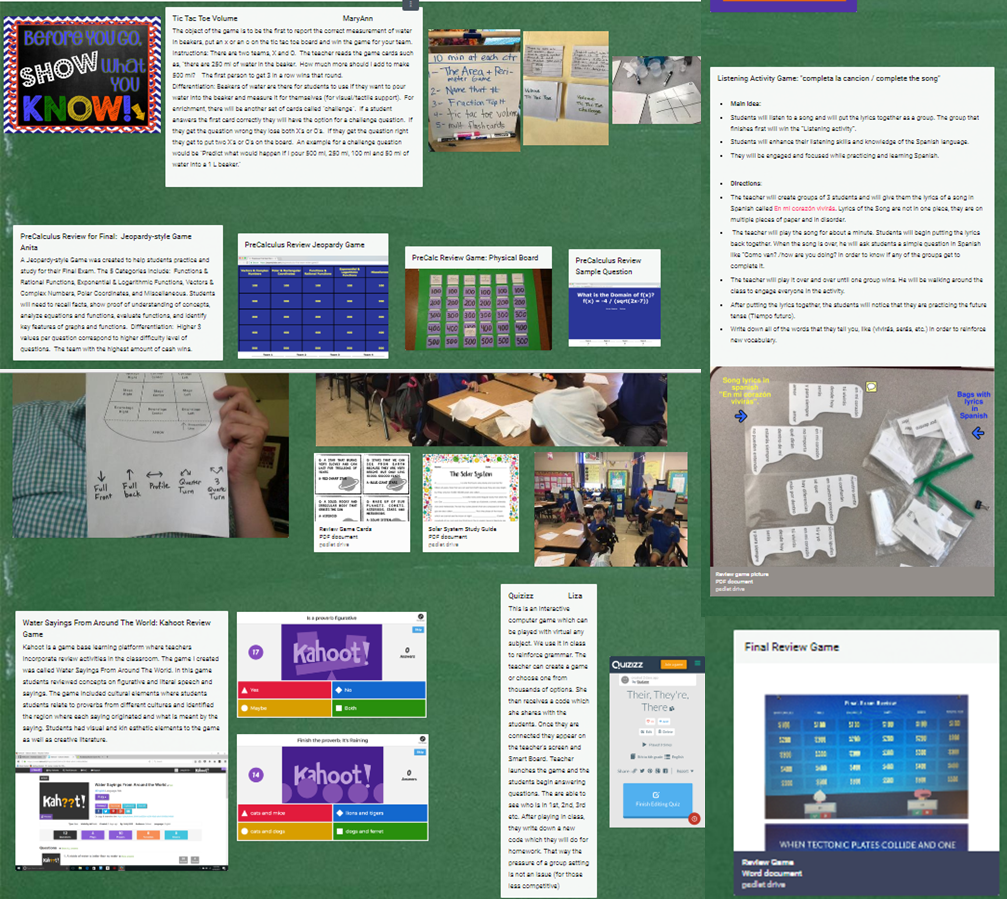9 Teacher-Designed Classroom Learning Retention Games That DON’T Require Technology
As teachers, we invest considerable time in developing lessons and assignments to teach skills and concepts, only to find during final exams that students are unable to demonstrate what they’ve learned. In most instances, students’ inability to recall information or use skills on-demand after a few weeks have passed is caused by forgetting rather than lack of mastery. Still, this forgetting results in poor performance, which oftentimes undermines students’ academic confidence and teachers’ instructional efforts. Fortunately, there is something teachers can do to improve knowledge retention and increase student learning--gamify learning. With gamified learning, teachers revisit key concepts with students in a fun and interactive way. From old-fashioned games like Tic-Tac-Toe to technology-based platforms like Kahoot, games can be used in a variety of ways to stimulate student learning and memory retention.
A cohort of Rutgers Alternate Route Teachers recently developed 9 low-tech classroom games aimed at addressing the phenomenon of forgetting. These games require students to practice the act of recalling information through an exciting and entertaining review format. Their games are free for all to access, and viewable via the online collaboration tool, Padlet. Click the image below to browse their game ideas, and access the detailed descriptions and instructions developed for each game.
Here's a snapshot of some of the games curated on Padlet:
-
MaryAnn Kasper, a Special Education teacher in Randolph, helps her students to review volume by playing a game of Tic-Tac-Toe. She splits the class into two teams- X and O. The objective of the game is to solve for the correct measurement of water in the beaker so that your team can place an X or an O on the Tic-Tac-Toe board.
-
Many teachers use the Jeopardy format to review for subjects such as Pre-Calculus, History, or Science. The classroom adaptation of Jeopardy is very similar to the format of the popular television game show. In preparation, teachers come up with five different categories and develop questions for each. The team of students that racks up the most points wins.
-
Some teachers engage their students in whiteboard response games. First, the teacher assigns everyone a partner. Each pair of students is given a small whiteboard and expo marker that they must use to quickly record their answers to questions in 25 seconds. Aliana Bleckicki , a K-12 teacher in Newark, NJ, used this game to prepare her third graders for a solar system quiz.
-
Spanish teacher Eder Loaiza Beltran from Morris, NJ uses a listening activity game called Completa La Cancion. Students are split into groups of three and given bags with lyrics from popular songs. The teacher plays each song for a minute. After the song ends, students must piece together the jumbled lyrics of each song. The team to finish first wins.
For more inspiration on how to incorporate games into your teaching practice, consider connecting with educators Nikolas Chatzopoulos (Twitter), Matthew Lynch (Twitter) and Rosshalde Pak (TeachHUB). They each have respectively published classroom gamification guides on free online game platforms, old-fashioned games with no technology requirements, and ways to gamify your teaching.


 Heather Ngoma has over 25 years of experience collaborating with educators across New Jersey to drive education innovation. She currently serves as the Director of the Rutgers-GSE Alternate Route Program in the Department of Learning and Teaching, a program which helps career changers, recent college graduates, and other aspiring education professionals become licensed teachers in New Jersey. Follow her on Twitter @heatherngoma.
Heather Ngoma has over 25 years of experience collaborating with educators across New Jersey to drive education innovation. She currently serves as the Director of the Rutgers-GSE Alternate Route Program in the Department of Learning and Teaching, a program which helps career changers, recent college graduates, and other aspiring education professionals become licensed teachers in New Jersey. Follow her on Twitter @heatherngoma.



